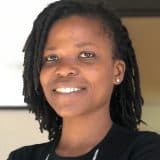
The Democratic Republic of the Congo is asking the United Nations Security Council to impose sanctions on the Rwandan government for its noncompliance with the Council’s resolution demanding a ceasefire in Congo. The country’s envoy to the UN, Zénon Mukongo Ngay, appealed to the Council on March 27, saying that the continued involvement of the Rwanda Defense Forces in the conflict violates Congo’s sovereignty.
“An effective cessation of hostilities and de-escalation will not be possible until increased pressure is brought to bear or until there are more robust sanctions against Rwanda and its M23/ADF allies,” Ngay said. The Council should “establish a sanctions regime applicable to Rwanda and its leaders, impose an arms embargo on Rwanda until it ceases its support for M23, and until it fully withdraws its army from DRC territory.”
Bintou Keita, the special representative of the UN secretary-general in Congo and head of the peacekeeping mission there, warned that human rights violations and abuses against women and children have risen in the last few months.
“These serious abuses targeting civilians include summary executions, the execution of over 100 people, as well as abductions and forced recruitment of young people, including children, in addition to conscription and forced labor,” Keita told the Council on Thursday. “Women and children remain the primary victims in North Kivu and Ituri, with serious violations of children’s rights affecting 403 children, including 90 girls.” (North Kivu and Ituri are provinces in Congo’s east.)
Charlotte Slente, secretary-general of the Danish Refugee Council, told the Council that 98 percent of human rights violations against women and girls since January have involved rape. She said that girls five years old and younger were being raped by armed groups as fighting rages on many fronts.
The conflict has worsened a desperate humanitarian situation in the Congo and neighboring countries in Central Africa. More than 660,000 people have been displaced in the last three months alone, adding to the 6.7 million people who were displaced nationwide as of 2024. Slente noted that nearly half of the newly homeless people are living in informal settlements. In the past three weeks, three makeshift camps hosting more than 400 households have sprung up outside Goma.
“Since the escalation of violence in January, 70,000 refugees have arrived in Burundi,” she said. “This influx is overwhelming existing transit centers and refugee camps in Burundi, which were already at full capacity.”
Zephyrin Maniratanga, Burundi’s permanent representative to the UN, told the Council that his country is directly affected by the “deadly invasion” because of its proximity to the Congo. Burundi shares a large western border with the DRC.
“As things stand,” Maniratanga said, “over 120,000 refugees are being housed in camps throughout Burundi, exerting growing pressure on our limited resources.”
The World Food Program and the Food and Agriculture Organization said jointly this week that 28 million Congolese are facing acute hunger. The UN agencies said 3.9 million of the 28 million are experiencing emergency levels of hunger.
Ngay of the Congo also urged the 15-member Council to consider referring Rwanda’s military interference in his country to the International Court of Justice. He said that nearly half of the entire Rwandan military force is stationed in various areas of the DRC, describing it as a military invasion and violation of the country’s sovereignty.
In February, the Council adopted Resolution 2773, demanding that the Rwandan Defense Forces stop supporting the M23 militia and withdraw its troops from the Congo immediately and unconditionally. M23, reportedly funded by the Rwandan government, is the primary armed group fighting Congolese authorities for control over the country’s vast mineral resources.
The long-running conflict escalated in January when M23 seized control of Goma in North Kivu, leaving a trail of hundreds of dead civilians and soldiers as well as displacing a massive portion of the one million population within weeks. The rebel group has since seized more territory, establishing parallel governance structures in Bukavu (South Kivu) and North Kivu.
Council members expressed concern that one month after the adoption of Resolution 2773, its key demands — a ceasefire, M23’s withdrawal from occupied territories and the removal of Rwandan forces — remain unfulfilled.
“The risk of conflagration in the Great Lakes region remains high,” Jérôme Bonnafont, France’s ambassador to the UN, said in the March 27 session. “The Council cannot be satisfied with the current situation.”
Regional peace initiatives have also failed to produce desired results. Angolan President João Lourenço, the mediator in the Luanda peace process, recently withdrew from his role, citing repeated failed negotiations and external interference.
On March 17, Europe imposed sanctions on Rwandan and Congolese nationals, as well as the mining company Gasabo Gold Refinery for fueling the conflict and resource exploitation in the DRC. A total of 32 individuals and two entities are now subject to travel bans and asset freezes. Additionally, Britain, Canada, Germany and the United States have also imposed bilateral sanctions on Rwanda.
The East African Community (EAC) and the Southern African Development Community (SADC) issued a communiqué in February after holding a joint summit in Tanzania, urging the Rwanda Defense Forces to disengage from the DRC and resume direct negotiations with all warring parties.
Dorothy Shea, the US chargé d’affaires ad interim to the UN, emphasized in the Council that the parties needed to do more than sign “communiqués.” She also criticized the Rwandan government’s “increasingly antagonistic rhetoric” against senior UN officials.
Rwanda’s Minister for Foreign Affairs and International Cooperation Olivier Nduhungirehe rejected DRC’s accusations, instead blaming the Congolese government for the fighting. He insisted that Rwanda’s “defensive measures” would remain in place until what he called a credible framework for long-term security guarantees along its borders was established.
He also accused the UN peacekeeping mission in DRC, Monusco, of bias in its reporting on the situation.
“Rwanda has always wanted a lasting political and security settlement for the region,” Nduhungirehe said. “We are committed to working with all parties to ensure that we uphold the commitments made, particularly the joint EAC-SADC summit process and other complementary peace-building initiatives.”
We welcome your comments on this article. What are your thoughts on the continuing conflict in eastern DRC?
Damilola Banjo is an award-winning staff reporter for PassBlue who has covered a wide range of topics, from Africa-centered stories to gender equality to UN peacekeeping and US-UN relations. She also oversees all video production for PassBlue. She was a Dag Hammarskjold fellow in 2023 and a Pulitzer Center postgraduate fellow in 2021. She was part of the BBC Africa team that produced the Emmy-nominated documentary, “Sex for Grades.” In addition, she worked for WFAE, an NPR affiliate in Charlotte, N.C. Banjo has a master’s of science degree from the Columbia University Graduate School of Journalism and an undergraduate degree from the University of Ibadan in Nigeria.





















United Nations Association of the USA Kentucky Division remains extremely concerned for the welfare of those living in the Democratic Republic of the Congo. We have kept contact since 2018 with several Congolese and pray for their safety – amid the killing, rapes, etc. When the invasion of Goma occurred late January 2025, of course it was easy for M23 and Rwanda backed militia to capture because there were only unarmed citizens with the element of the surprise with merciless bombing, killing of 3,000, and injuring of the public (2900) which has created a scary new way of living. Please continue to write about the conditions in the DRC – Goma, Bukavu, etc.